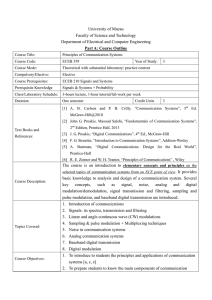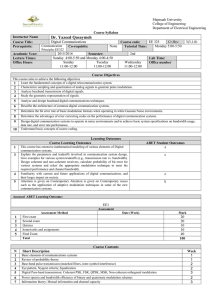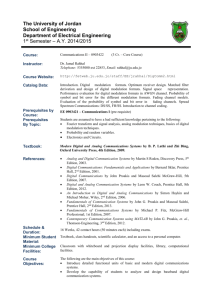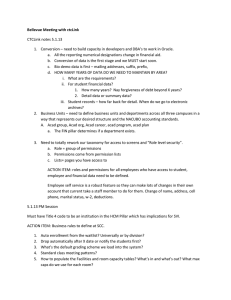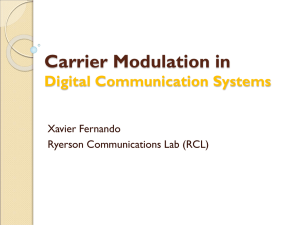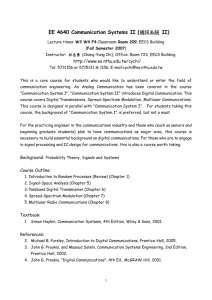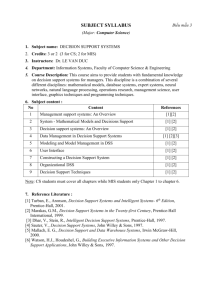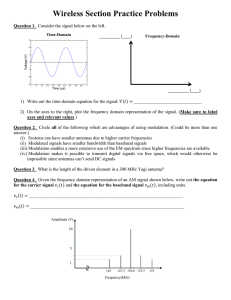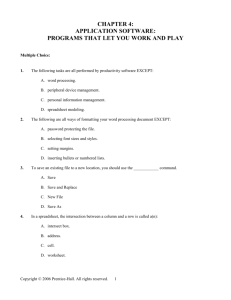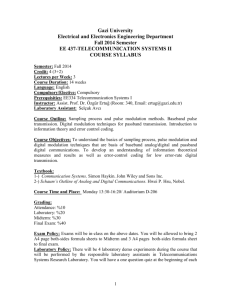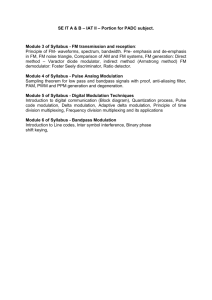EE6101 DIGITAL COMMUNICATION SYSTEMS Acad Unit: 3
advertisement
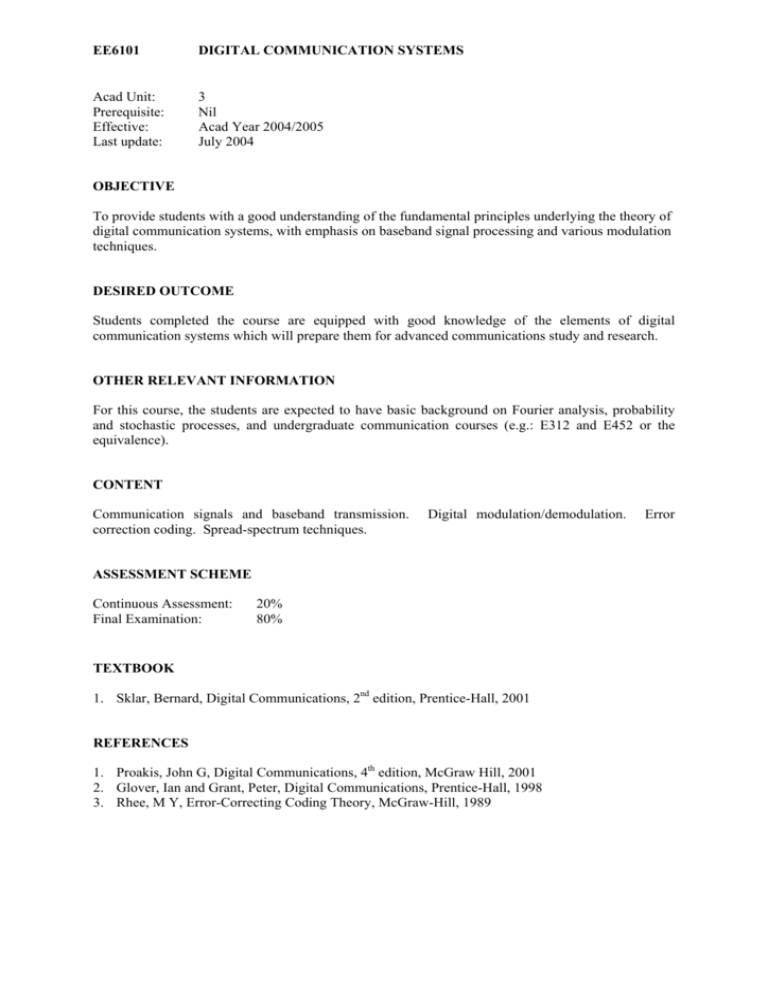
EE6101 DIGITAL COMMUNICATION SYSTEMS Acad Unit: Prerequisite: Effective: Last update: 3 Nil Acad Year 2004/2005 July 2004 OBJECTIVE To provide students with a good understanding of the fundamental principles underlying the theory of digital communication systems, with emphasis on baseband signal processing and various modulation techniques. DESIRED OUTCOME Students completed the course are equipped with good knowledge of the elements of digital communication systems which will prepare them for advanced communications study and research. OTHER RELEVANT INFORMATION For this course, the students are expected to have basic background on Fourier analysis, probability and stochastic processes, and undergraduate communication courses (e.g.: E312 and E452 or the equivalence). CONTENT Communication signals and baseband transmission. correction coding. Spread-spectrum techniques. Digital modulation/demodulation. ASSESSMENT SCHEME Continuous Assessment: Final Examination: 20% 80% TEXTBOOK 1. Sklar, Bernard, Digital Communications, 2nd edition, Prentice-Hall, 2001 REFERENCES 1. Proakis, John G, Digital Communications, 4th edition, McGraw Hill, 2001 2. Glover, Ian and Grant, Peter, Digital Communications, Prentice-Hall, 1998 3. Rhee, M Y, Error-Correcting Coding Theory, McGraw-Hill, 1989 Error
